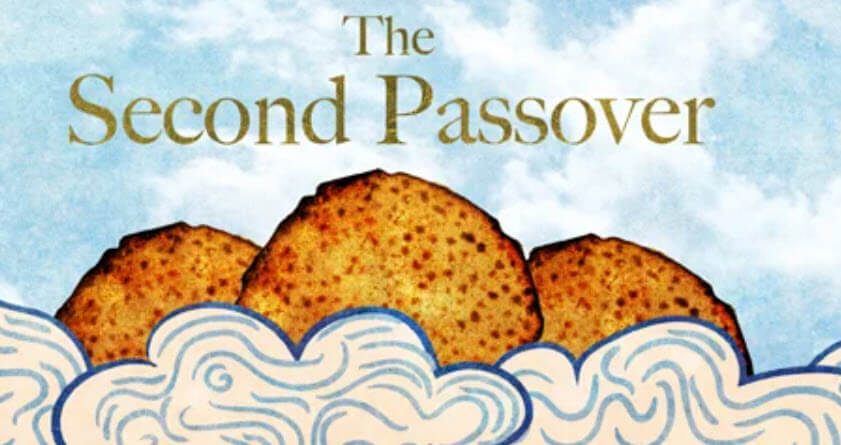Discover the history and significance of Pesach Sheni, the lesser-known Jewish holiday that falls on the 14th day of Iyar. Learn how it originated, how it’s observed today, and why it’s an important reminder of the idea of second chances and the continuity of Jewish tradition.
Pesach Sheni, which means “Second Passover” in Hebrew, is a minor Jewish holiday that falls on the 14th day of the Hebrew month of Iyar, which is one month after Passover. According to the Torah (Numbers 9:6-13), individuals who were unable to participate in the Passover sacrifice due to being impure or distant from the Temple were given a second chance to offer the sacrifice on Pesach Sheni.
Today, Pesach Sheni is not widely celebrated as a holiday, but some Jewish communities still observe the day by eating matzah and avoiding leavened bread, similar to Passover. The day also serves as a reminder of the importance of second chances and the idea that it is never too late to make amends or reconnect with one’s spiritual practice.
History of Pesach Sheni
The history of Pesach Sheni dates back to the time of the Exodus from Egypt, as described in the Torah (Numbers 9:1-14). According to the text, the Israelites were commanded to offer the Passover sacrifice on the 14th day of the Hebrew month of Nissan. However, some people were unable to participate in the sacrifice because they were impure due to contact with a dead body or because they were on a distant journey and could not reach the Temple in time.
These individuals approached Moses and Aaron and asked what they should do, since they were unable to fulfill the commandment of the Passover sacrifice. In response, God instructed Moses that those who were impure or distant should observe Pesach Sheni one month later, on the 14th day of Iyar, and offer the Passover sacrifice then.
This allowed those who missed the original observance of Passover to fulfill the commandment at a later time. The celebration of Pesach Sheni was continued during the time of the Second Temple in Jerusalem, and although it is not widely celebrated as a holiday today, it remains an important reminder of the idea that it is never too late to make amends or reconnect with one’s spiritual practice.

Pesach Sheni Timeline
Here is a timeline of the history of Pesach Sheni:
- 1446 BCE: According to the Torah, the Israelites were commanded to offer the Passover sacrifice on the 14th day of the Hebrew month of Nissan, in commemoration of the Exodus from Egypt.
- c. 1280 BCE: The Israelites, led by Moses, complete the construction of the Tabernacle in the desert, where they would offer sacrifices and perform other religious rituals.
- c. 1000 BCE: King David conquers Jerusalem and establishes it as the capital of the Kingdom of Israel. His son, King Solomon, builds the First Temple in Jerusalem, which becomes the center of Jewish worship.
- 586 BCE: The Babylonians conquer Jerusalem and destroy the First Temple. Many Jews are taken into exile in Babylon.
- 516 BCE: After the Persian King Cyrus allows the Jews to return to Jerusalem and rebuild the Temple, the Second Temple is completed.
- c. 70 CE: The Roman Empire destroys the Second Temple in Jerusalem, effectively ending the centralized practice of the Jewish religion.
- 9th century CE: The Talmud, a collection of Jewish laws and traditions, is compiled in Babylonia.
- 1948 CE: The modern State of Israel is established.
- Today: Although Pesach Sheni is not widely celebrated as a holiday, it remains an important reminder of the importance of second chances and the idea that it is never too late to make amends or reconnect with one’s spiritual practice.
How to Observe Pesach Sheni
Today, Pesach Sheni is not widely celebrated as a holiday in the same way that Passover is observed, but some Jewish communities still observe the day in the following ways:
- Matzah: Some people eat matzah on Pesach Sheni, in commemoration of the original Passover observance.
- Avoiding Chametz: Similar to Passover, some people avoid leavened bread and other products made with chametz (grains that have been fermented) on Pesach Sheni.
- Reflection: Pesach Sheni can be a time to reflect on the idea of second chances and to consider ways to reconnect with one’s spiritual practice or make amends.
- Learning: Some people use Pesach Sheni as an opportunity to study Jewish texts related to the holiday, such as the Torah portions describing the original Passover observance and the subsequent establishment of Pesach Sheni.
- Prayer: Many people attend prayer services or recite special prayers on Pesach Sheni, either in synagogue or at home.
It’s important to note that there is no set way to observe Pesach Sheni, and each individual or community may choose to observe the day in their own way.
Why Pesach Sheni is Important
Pesach Sheni is important for several reasons.
First, it serves as a reminder of the importance of second chances and the idea that it is never too late to make amends or reconnect with one’s spiritual practice. The original Pesach Sheni was established to allow individuals who were unable to participate in the Passover sacrifice to do so at a later time, and this idea of second chances is still relevant today.
Second, Pesach Sheni highlights the significance of the Passover holiday and the role that the Temple played in Jewish worship during biblical times. It reminds us of the importance of the Passover sacrifice and the central role that the Temple played in the observance of Jewish holidays.
Finally, Pesach Sheni is a part of Jewish tradition and serves as a link to the past and to the continuity of Jewish practice throughout history. By observing Pesach Sheni, Jews today connect themselves to their ancestors who observed the holiday in ancient times, and to the ongoing practice of Judaism in the present day.